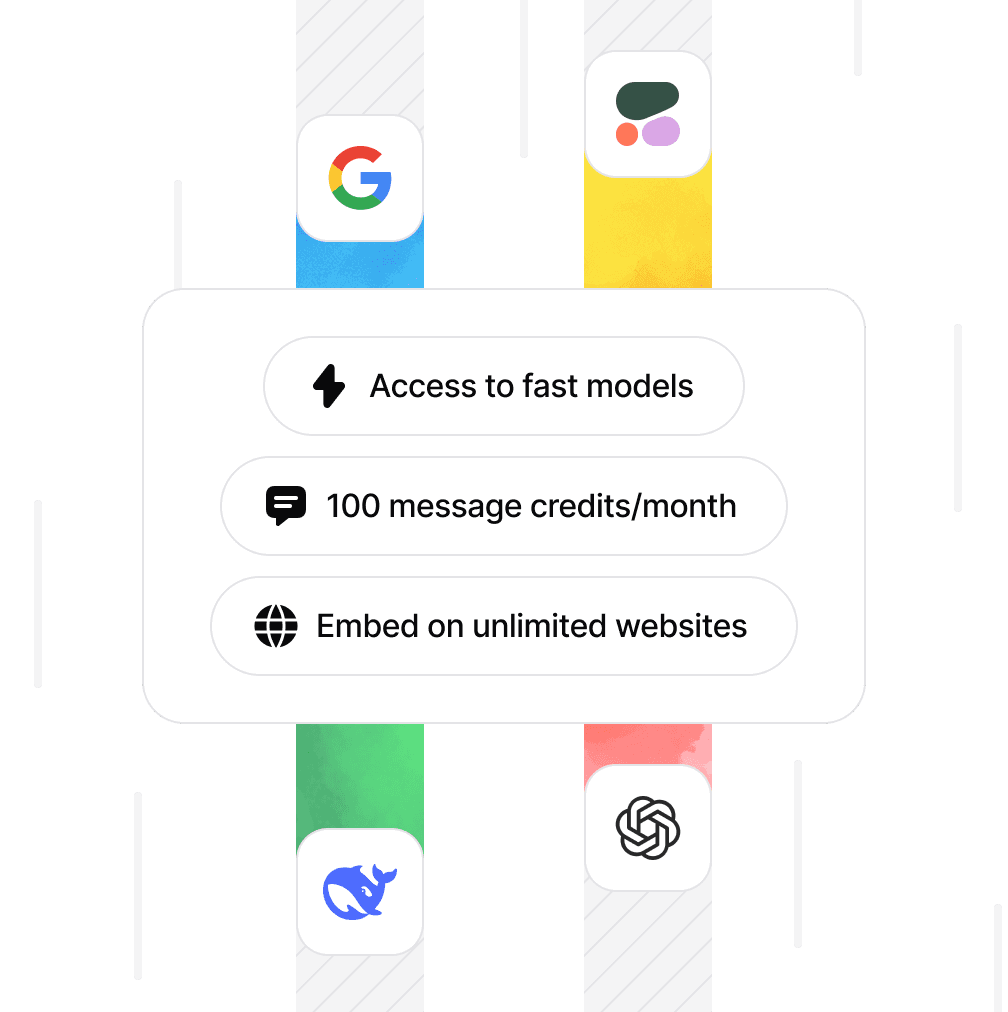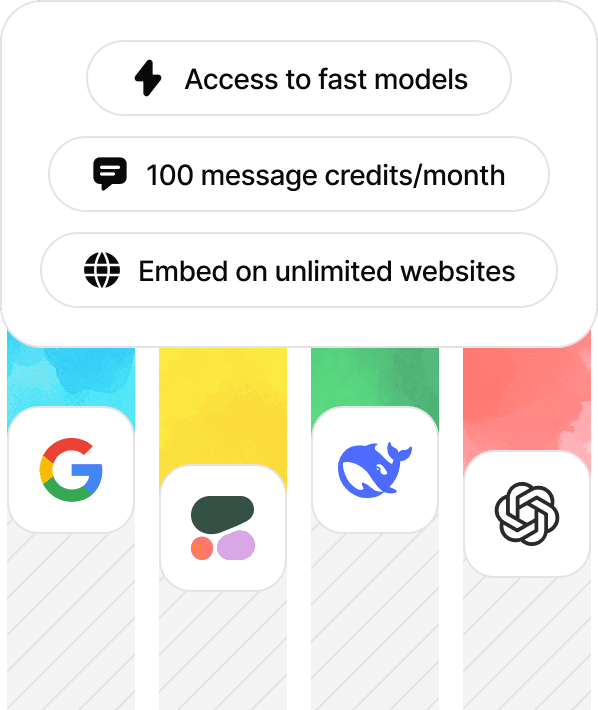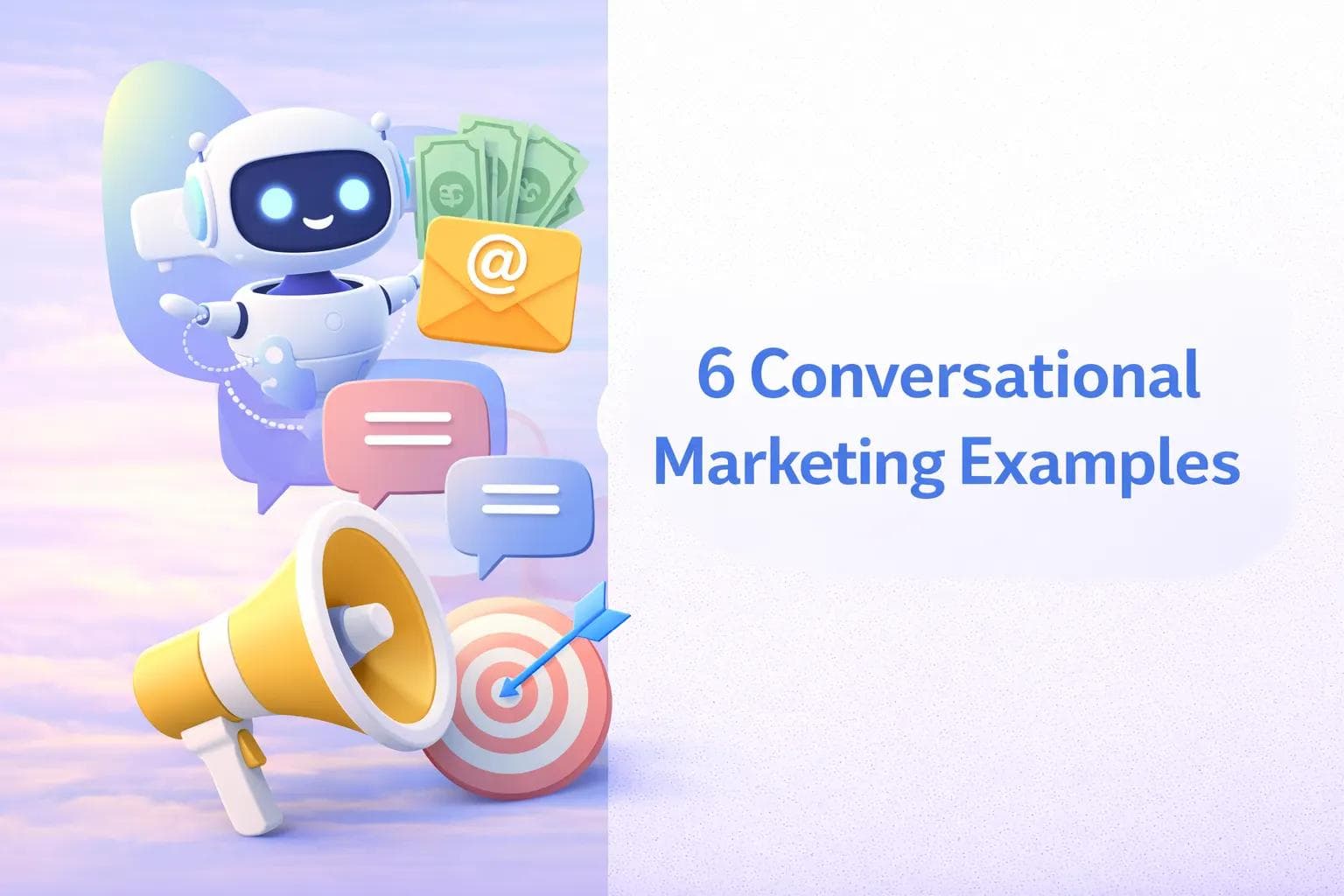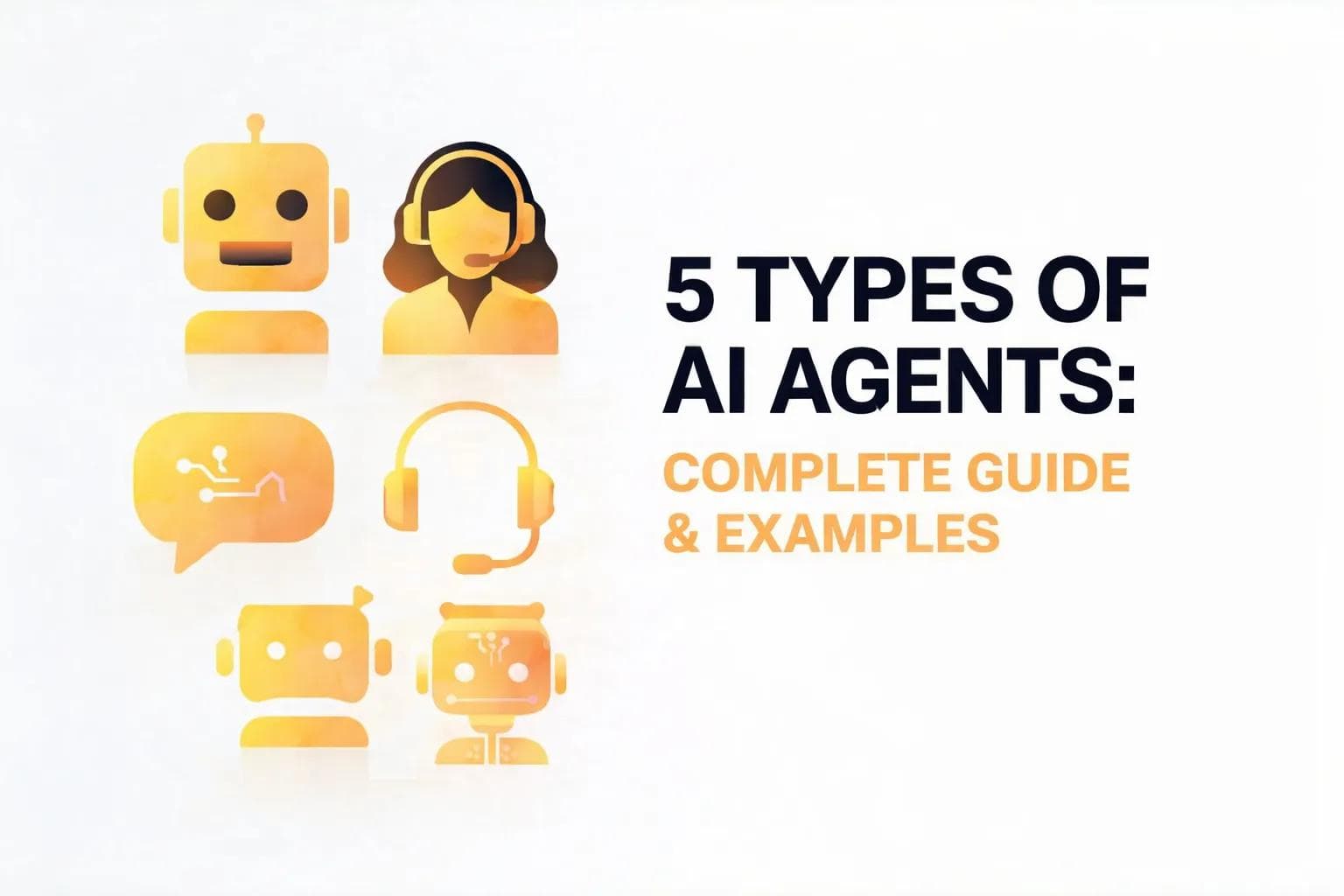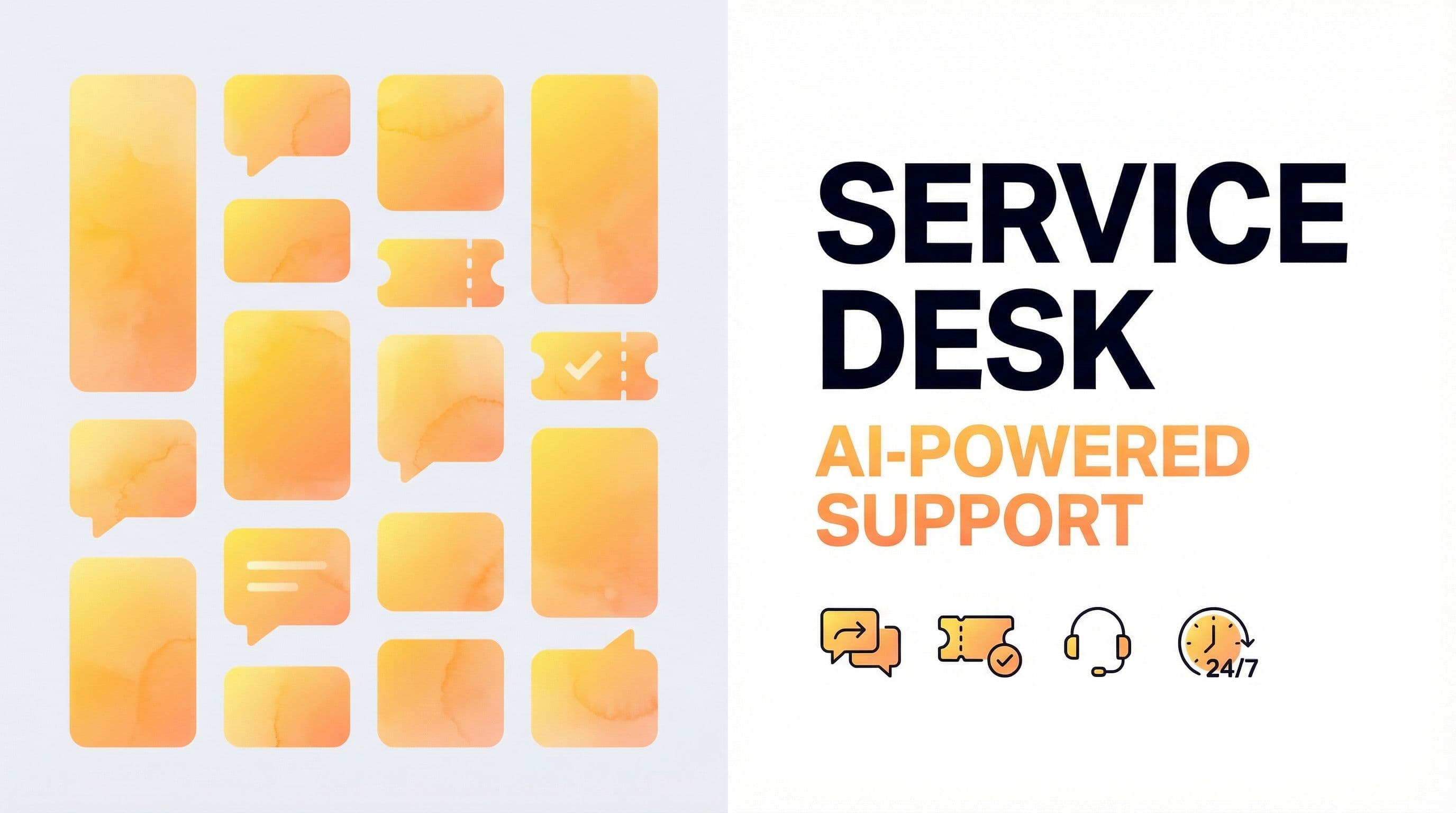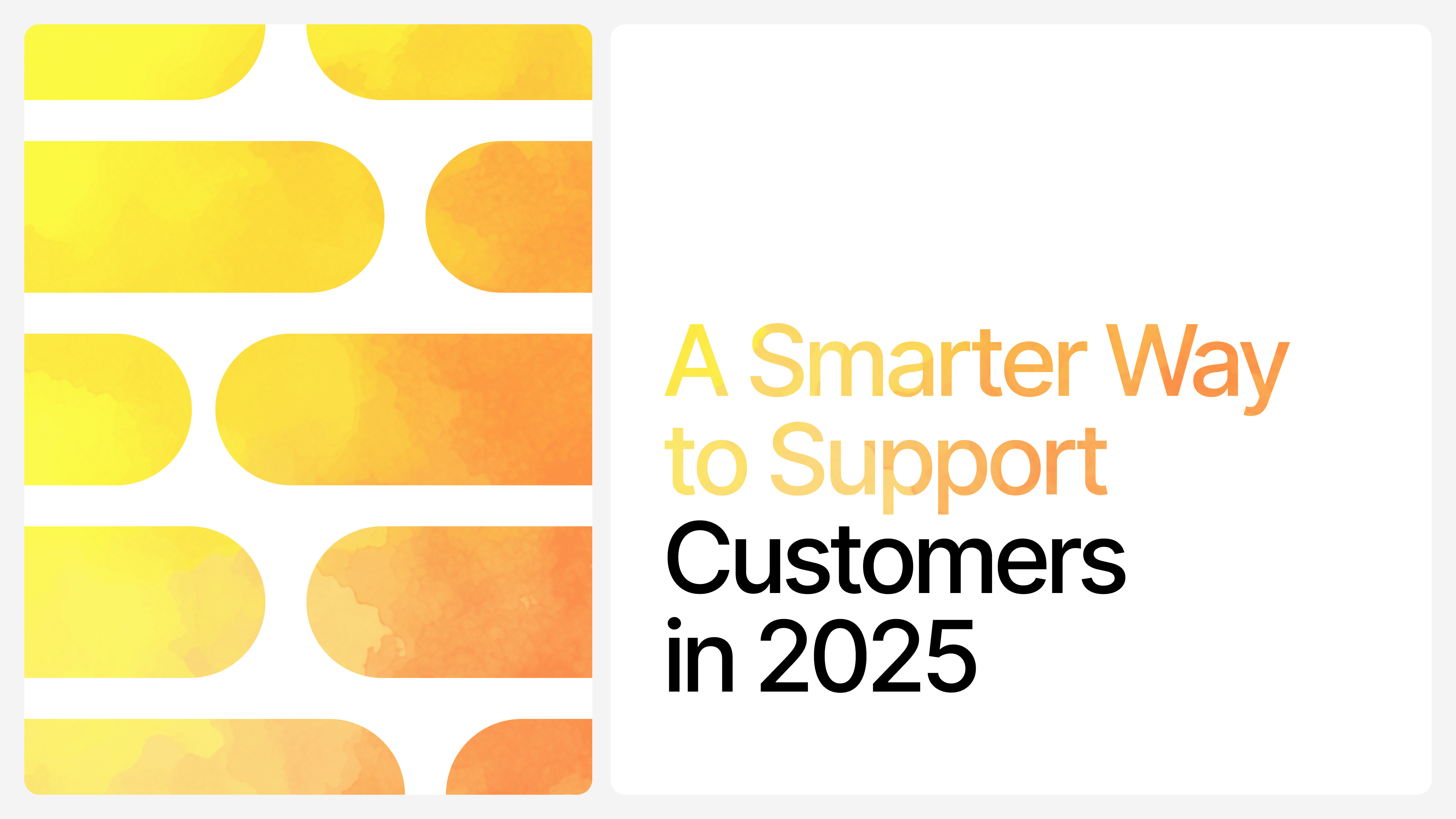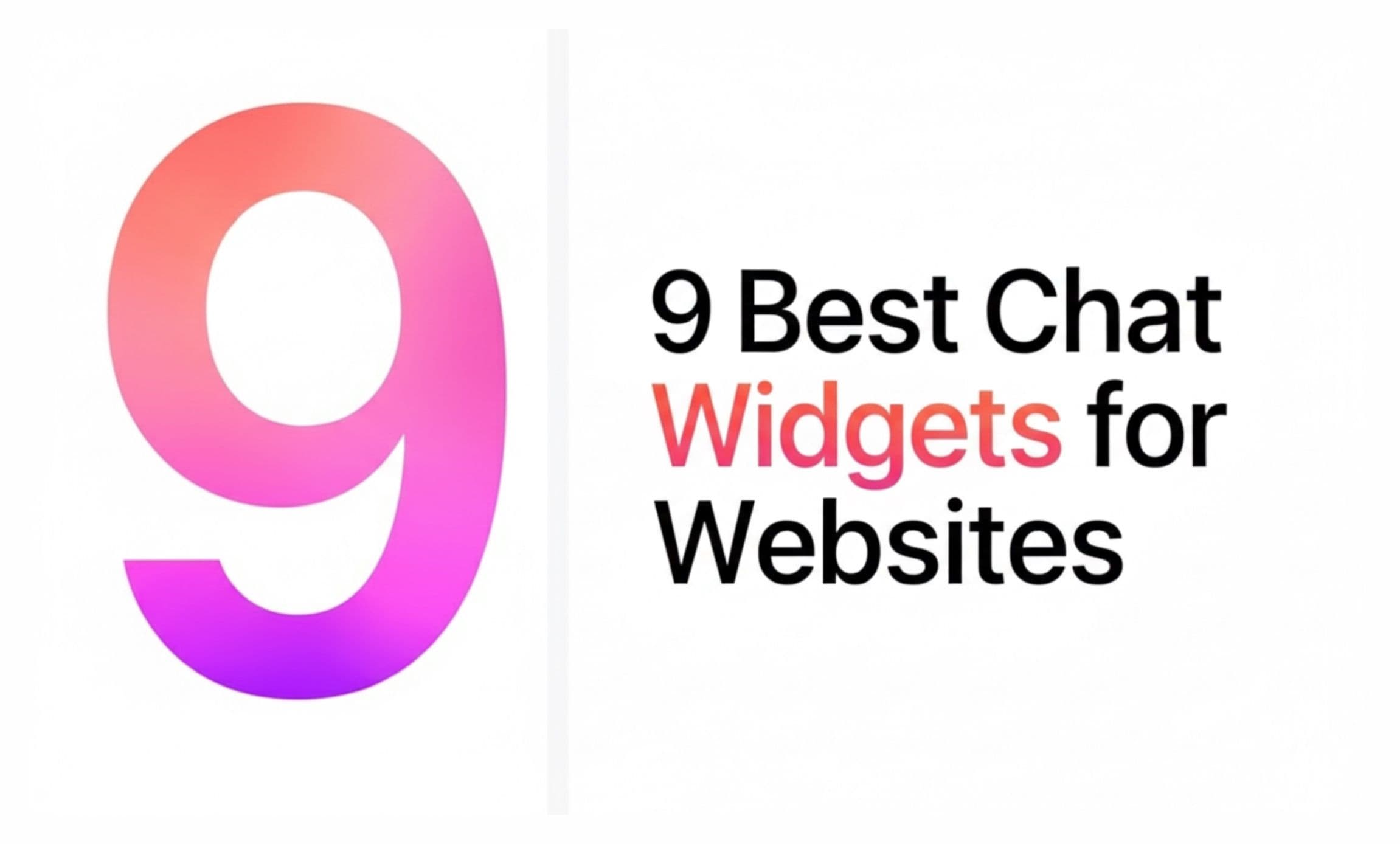The Best AI-Powered Chatbots for Business 2026
Max T
Jul 30, 2025
10 min read
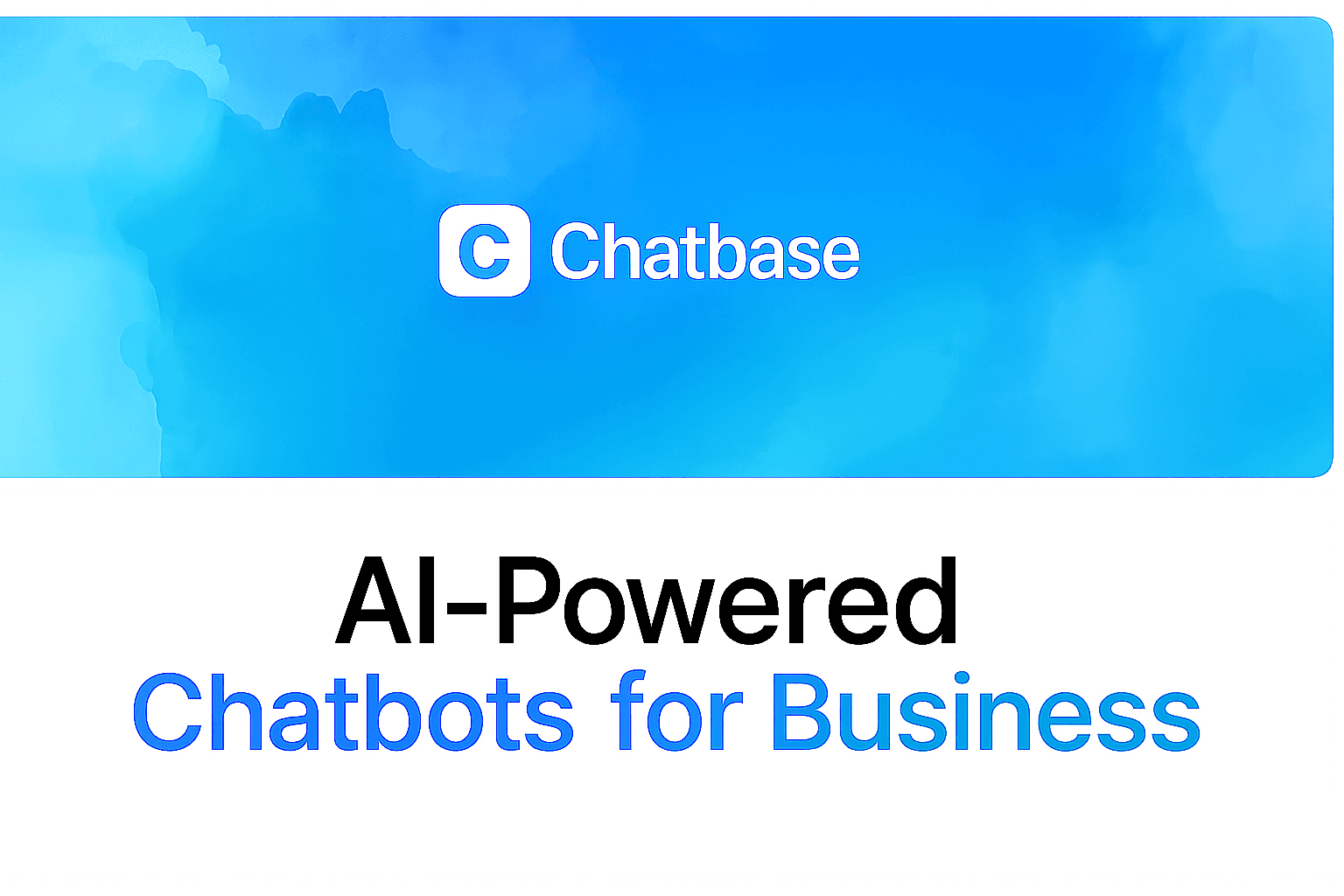
Hello..
What Are AI-Powered Chatbots?
AI-powered chatbots are virtual assistants that understand language, context, and intent. Unlike traditional rule-based bots that follow fixed scripts, AI bots can handle open-ended questions, learn from interactions, and respond more naturally.
A basic chatbot might give you three options and loop you through a decision tree. An AI chatbot can understand “I need help with my invoice” and route that request appropriately. No buttons, no frustration.
For businesses, the difference is huge. AI chatbots reduce the load on support teams by resolving more queries automatically. They improve response time, personalize replies, and can even handle tasks like lead qualification or appointment scheduling.
More importantly, they’re scalable. Whether you're a solo founder or an enterprise, an AI chatbot can engage customers 24/7 without adding headcount.
That’s why they’re no longer just nice-to-have. They’re part of how modern businesses operate more efficiently and deliver faster, smarter customer experiences.
Why AI-Powered Chatbots Matter for Businesses
1. Instant, 24/7 Customer Support AI chatbots don’t sleep. They can handle customer queries at any hour. This reduces wait times and keeps your business available around the clock.
2. Reduced Support Costs They deflect common and repetitive questions that would otherwise eat into human agent time. This allows you to scale support without increasing your team size.
3. Consistent Experience Across Channels Whether it's your website, Messenger, WhatsApp, or email, AI chatbots help maintain a unified tone and response logic across all platforms.
4. Smart Automation, Not Just Scripts Unlike basic rule-based bots, AI chatbots understand context and adapt intelligently. They help users find products, book appointments, or escalate to a human when necessary.
5. Real-Time Data & Insights You don’t just get automation. You also get insights. Businesses can track what customers are asking, where they drop off, and how to improve both service and products.
Top AI Chatbots for Businesses
AI chatbots have evolved into core tools for driving customer engagement and operational efficiency. From automating support to qualifying leads and improving user journeys, the right chatbot can have a measurable impact on your business.
Here are some of the best options available:
1. Chatbase
Who is it for, and what does it do?Chatbase is built for customer support teams, sales reps looking to qualify leads, and marketers who want to engage visitors intelligently. It’s an AI-powered business chatbot that doesn’t just respond to queries; it can also take action, like collecting emails, booking appointments, or escalating tickets, thanks to its integrated AI agent capabilities.
Why Chatbase Stands Out
What makes Chatbase stand out is how it goes beyond traditional support bots. It’s not just about answering FAQs; it’s designed to handle workflows. You can set up agents to collect leads, check order statuses, trigger webhooks, or even integrate with tools like Slack, Zendesk, and Shopify to automate deeper actions right inside the conversation.
Chatbase also lets you tailor the chatbot to match your brand tone or give it a full-on personality. Whether you want a friendly support rep, a cheeky outdoor gear assistant, or a calm insurance agent, you can shape the responses however you want.
Another key advantage is how fast it is to get started. Most teams can go from idea to live chatbot in under ten minutes, no code needed. But if you want to go deeper, it supports custom actions via APIs, fine-tuned prompts, and multiple AI models like GPT-4, Claude 4, or Gemini, so power users aren’t left out.
Key Strengths
- AI agents that take real actions, not just talk
- Customizable tone, response style, and logic
- Fast setup (under 10 minutes) — perfect for non-technical teams
- Integrates with tools like Zendesk, Slack, Shopify, and more
- Powerful enough for advanced teams, simple enough for small businesses
2. Intercom
Who is it for and what does it do Intercom is ideal for growing companies and enterprise teams that want to manage live chat, AI automation, and omnichannel support from one place. It’s an AI-powered customer service platform with built-in bots, smart workflows, and seamless website integration.
Why Intercom Stands Out
Intercom’s Fin AI Agent is one of the quickest AI chatbots available. It pulls answers directly from your existing Help Center, so there’s no need to manually write long FAQ entries. During testing, it handled most tier-one support queries with accurate, confident replies without needing to escalate to a human agent.
But it’s not just about automation. Intercom’s AI Copilot works in tandem with human agents by suggesting smart replies, adding context, and prompting follow-up questions live during chats. It’s especially helpful for onboarding new support staff or reducing ramp-up time.
Their Messenger widget is also one of the best-designed for web and mobile. You can customize what shows up, like help articles, “chat now” buttons, or open ticket links, and it blends easily into your site’s design with just a few clicks.
Intercom also supports conversation routing across WhatsApp, Facebook Messenger, SMS, and email. Everything is managed from the same dashboard. On top of that, you get tools like a no-code Help Center builder, agent performance analytics, product tours, screen sharing, and automation workflows.
The platform is robust and feature-rich, and can feel overwhelming at first.
Key Strengths
- Fin AI chatbot handles tier-one support directly from your help docs
- AI Copilot boosts human agents with live suggestions and context
- Messenger widget is easy to brand and works across web and mobile
- Unified inbox for WhatsApp, Facebook, SMS, email, and live chat
- Rich ecosystem with over 450 app integrations
3. Tidio
Who is it for, and what does it do Tidio is built for small and mid-sized e-commerce businesses looking to boost conversions, manage support, and stay in touch with customers in real time. It’s a unified customer service platform that combines live chat, AI chatbots, and email marketing — all from a single dashboard.
Why Tidio Stands Out
Tidio keeps everything neatly organized in one place. Your inbox, visitor tracker, email tools, and chatbot settings all live in a clean interface that’s easy to navigate. You don’t need to jump between different tabs or tools to keep things running, which makes day-to-day workflows feel much lighter.
The chatbot builder is one of Tidio’s most useful features. It comes with pre-built templates for handling things like abandoned carts, lead capture, and product questions. If you’re not sure where to start, those templates help you launch fast.
Lyro, Tidio’s AI chatbot, is where things really get interesting. It understands context and can respond more naturally to questions. When I tested it, it felt more conversational than most e-commerce bots and handled customer queries with flexibility.
Tidio also gives you the option to build Flows, which are rule-based automation paths for things like FAQs or conversation routing. You can use both Flows and Lyro at the same time, which means the AI can handle open-ended or complex queries while Flows take care of the repetitive stuff in the background. That kind of hybrid setup is rare and genuinely helpful for lean teams.
On the integration side, Lyro Connect makes it easy to sync Tidio with platforms like Zendesk, HubSpot, and Salesforce. This helps centralize your support data and conversations without complex setup.
Key Strengths
- Intuitive interface with all key tools in one place
- Combine AI-powered Lyro with rule-based Flows for flexible automation
- Includes pre-built templates for e-commerce use cases
- Built-in email marketing alongside chat tools
- Connects with major CRMs and helpdesk platforms
4. Zendesk AI
Who is it for, and what does it do Zendesk AI is best suited for growing businesses that need a full-featured customer experience platform to support large volumes of inquiries. It combines AI automation with live agent tools to help teams deliver fast, personalized service across chat, email, phone, and social channels.
Why Zendesk AI Stands Out
Zendesk is built for scale, but it doesn’t feel overwhelming. Its AI agents are specifically trained for customer support using a mix of generative AI and Zendesk’s own intent models. The result is natural, context-aware replies that can handle multi-step conversations without sticking to rigid scripts.
You can build custom automation flows with Zendesk’s no-code Bot Builder and connect them directly to your messaging systems. This lets the bots tackle common questions upfront, reducing agent load while maintaining a smooth customer experience.
When it’s time for a human to jump in, the Agent Workspace centralizes everything. Support teams can manage email, live chat, social messages, and even phone calls from one unified view. It eliminates channel-switching confusion and keeps context intact across every touchpoint.
Zendesk also includes a customizable Help Center for self-service, which helps cut down ticket volume even further. The automation builder supports triggers and conditions that help speed up first responses, while built-in voice support (via Zendesk Voice) lets teams handle complex cases with ease.
Analytics and reporting are another highlight. You get out-of-the-box dashboards to track performance and customer trends, along with the ability to build custom reports as your needs grow.
Key Strengths
- Trained AI agents built specifically for customer support use cases
- Unified Agent Workspace for all support channels
- No-code automation builder for chat flows and triggers
- Voice support included for real-time, high-touch scenarios
- Robust reporting and customizable dashboards
5. HubSpot Chatbot
Who is it for, and what does it doHubSpot’s AI chatbot is best for marketing and sales teams, especially those already using the HubSpot CRM. It helps automate conversations, qualify leads, book meetings, and route inquiries, all while syncing data seamlessly across the HubSpot platform.
Why HubSpot Chatbot Stands Out
If your team is already using HubSpot, the native chatbot feels like a natural extension. You don’t need to deal with third-party integrations or data silos. Chats, contact records, tickets, and emails all sync automatically within the same ecosystem.
The bot builder is simple and rule-based, so it’s not trying to be an overly complex AI assistant. Instead, it’s focused on helping teams automate repetitive tasks, such as booking meetings, answering FAQs, or routing users to the right human agent. You can choose from pre-built templates or set up custom flows using a visual editor with drag-and-drop actions.
What makes it especially useful is the deep integration with your CRM. You can trigger workflows, assign contacts to pipelines, update fields, and pass data to your sales team based on what someone says in a chat. All of this can be done without writing a single line of code.
You also get access to HubSpot’s shared inbox, where your team can manage live chats alongside email, form submissions, and tickets. This unified view helps reduce friction and lets sales and support teams work more collaboratively.
For teams that prioritize clean data, simple automation, and seamless CRM integration, it gets the job done efficiently.
Key Strengths
- Deep integration with HubSpot CRM and Marketing Hub
- Visual chatbot builder with pre-built templates
- Automates lead capture, meeting scheduling, and routing
- Syncs chat data directly with contact records and workflows
- Shared inbox for handling conversations across channels
6. Drift
Who is it for and what does it do Drift is designed for B2B companies, particularly sales and revenue teams that want to connect with website visitors in real time. It’s a conversational marketing platform that combines AI chat, live messaging, and automation to help teams qualify leads and move deals forward.
Why Drift Stands Out
Drift’s focus is on helping businesses create conversations that support pipeline growth. Its chatbot tools use natural language understanding to engage visitors and ask qualifying questions based on who they are and what stage they’re in. You can build playbooks that determine when to trigger certain conversations — for example, to schedule a demo or collect contact information.
While not as plug-and-play as some simpler platforms, Drift does give teams control over how conversations are routed. It works well with CRMs like Salesforce and marketing platforms like Marketo. This helps reps see lead details and previous engagement history without switching tools.
The lead routing feature is also useful. If a visitor is qualified, Drift can notify the right sales rep immediately so they can step in while the person is still active on the site. For B2B teams, this speed can improve follow-up times and overall conversion rates.
Drift also includes analytics to help track performance, such as how many meetings were booked, which playbooks are performing best, and what portion of the pipeline was influenced by conversations.
Key Strengths
- Tailored for B2B sales and marketing use cases
- Playbooks allow flexible chatbot automation
- Integrates with Salesforce, Marketo, and other sales tools
- Real-time lead routing to the right sales reps
- Reporting tools to track chat impact on pipeline
7. Replicant
Who is it for and what does it do Replicant is best suited for enterprise customer support teams that deal with high call volumes. It’s a voice AI platform that handles phone-based customer service using conversational AI, helping teams reduce wait times and scale support without adding headcount.
Why Replicant Stands Out
Replicant focuses on voice, not chat, which already sets it apart from many other AI solutions. It’s designed to act like a human agent on the phone, capable of holding full conversations, understanding intent, and resolving customer issues over calls.
The platform uses what it calls the Thinking Machine, which listens, understands, and responds in real time. During testing, it was able to handle a wide range of common phone interactions, such as checking order statuses, processing refunds, and verifying account information. It felt more fluid than traditional phone menus or static voice bots.
Replicant also integrates with CRMs and helpdesk platforms like Zendesk, Salesforce, and Five9. This means support data can be logged automatically, and handoffs to live agents include full context when human intervention is needed.
The setup process is more involved than with a typical chatbot, but the Replicant team works closely with clients to design and train conversation flows. For large businesses, the payoff is round-the-clock voice support that actually feels conversational.
Key Strengths
- Specializes in phone-based customer service automation
- Conversational AI handles real-time voice interactions
- Integrates with CRMs and contact center platforms
- Reduces call wait times and agent workload
- Designed for high-volume, enterprise-grade use
7. ManyChat
Who is it for and what does it do ManyChat is designed for businesses looking to engage customers primarily through social media messaging platforms like Facebook Messenger, Instagram, and WhatsApp. It combines AI chatbots with marketing automation to help teams generate leads, nurture prospects, and drive sales.
Why ManyChat Stands Out
ManyChat’s strength lies in its focus on social media channels, making it ideal for brands that rely heavily on Facebook or Instagram to reach their audience. It offers an easy-to-use visual chatbot builder with pre-built templates for common marketing and support scenarios.
The platform supports a mix of AI-powered responses and rule-based flows, allowing businesses to automate FAQs, send personalized messages, and capture leads through conversational forms. It also integrates with popular tools like Shopify, Mailchimp, and Google Sheets to help manage customer data and marketing campaigns.
ManyChat is particularly useful for small to medium businesses looking to combine chatbot marketing with live messaging without needing extensive technical skills. Its user-friendly interface and affordable pricing make it accessible for teams new to chatbot automation.
Key Strengths
- Focused on social media messaging channels
- Visual builder with marketing and support templates
- Combines AI responses with rule-based automation
- Integrates with e-commerce and marketing tools
- Accessible for small and medium-sized businesses
Get Started with AI-Powered Chatbots for Business
Choosing the right AI-powered chatbot can transform how your business engages customers, streamlines support, and drives growth.
Among the options, Chatbase stands out as the best business chatbot thanks to its powerful AI agents capable of not just answering questions but taking meaningful actions like lead capture, appointment booking, and seamless integration with popular tools.
With Chatbase, businesses benefit from a fast setup, customizable tone, and advanced AI capabilities that scale from small teams to large enterprises. It’s no surprise that customer support and sales teams rely on Chatbase to deliver smarter, more efficient service around the clock.
Ready to elevate your customer experience and automate your workflows with the best AI chatbot on the market?
→ Sign up for Chatbase today and see how easy it is to get started.
Share this article:
